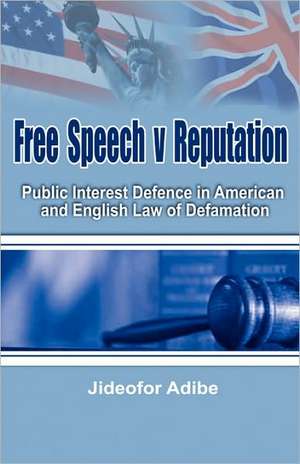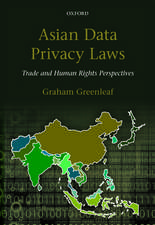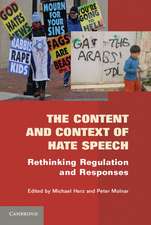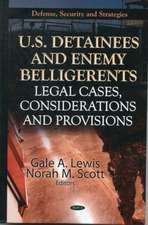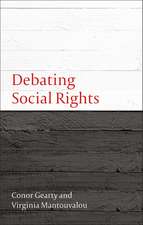Free Speech V Reputation: Public Interest Defence in American and English Law of Defamation
Autor Jideofor Patrick Adibeen Limba Engleză Hardback – 31 dec 2009
Preț: 189.40 lei
Nou
Puncte Express: 284
Preț estimativ în valută:
36.24€ • 37.94$ • 29.99£
36.24€ • 37.94$ • 29.99£
Carte tipărită la comandă
Livrare economică 05-19 aprilie
Preluare comenzi: 021 569.72.76
Specificații
ISBN-13: 9781906704322
ISBN-10: 1906704325
Pagini: 110
Dimensiuni: 140 x 216 x 10 mm
Greutate: 0.29 kg
Ediția:New.
Editura: Adonis & Abbey Publishers Ltd
ISBN-10: 1906704325
Pagini: 110
Dimensiuni: 140 x 216 x 10 mm
Greutate: 0.29 kg
Ediția:New.
Editura: Adonis & Abbey Publishers Ltd
